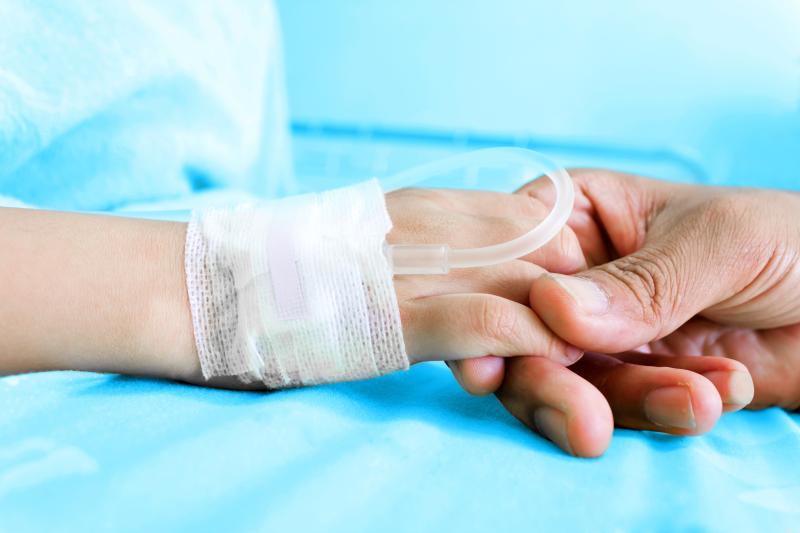
The combination of decitabine and vorinostat does not appear to be feasible in the treatment of children with B-cell acute lymphoblastic leukaemia (B-ALL), despite encouraging response rates and pharmacodynamics, because of increased incidence of significant infectious toxicities, according to data from the TACL* pilot study.
Twenty-three children (median age, 12 years) received decitabine 15 mg/m2/dose intravenously on days 1–7 and 15–21, and vorinostat 180 mg/m2/dose orally (tablet or suspension; max dose 400 mg daily) on days 3–10 and 17–24. The chemotherapy regimen used consisted of vincristine, dexamethasone, mitoxantrone, and PEG-asparaginase.
Of the patients, six (26 percent) had refractory disease, and 11 (48 percent) had a prior allogeneic haematopoietic cell transplantation. Three patients experienced dose-limiting toxicities, which included cholestasis, steatosis, and hyperbilirubinaemia (n=1); seizure, somnolence, and delirium (n=1); and pneumonitis, hypoxia, and hyperbilirubinaemia (n=1).
Frequently reported grade 3–4 toxicities were hypokalaemia (65 percent), anaemia (78 percent), febrile neutropenia (57 percent), hypophosphatemia (43 percent), leukopenia (61 percent), hyperbilirubinemia (39 percent), thrombocytopenia (87 percent), neutropaenia (91 percent), and hypocalcaemia (39 percent). Infectious complications were also common, with 17 of 23 (74 percent) patients developing grade ≥3 infections, including invasive fungal infections in eight (35 percent).
Nine patients (39 percent) showed complete response (CR; CR + CR without platelet recovery + CR without neutrophil recovery), and five (22 percent) had stable disease. Nine patients (39 percent) were not evaluable for response, mainly due to treatment-related toxicities. Correlative pharmacodynamics revealed potent in vivo modulation of epigenetic marks, and modulation of biologic pathways associated with functional antileukaemic effects.
*Therapeutic Advances in Childhood Leukemia & Lymphoma